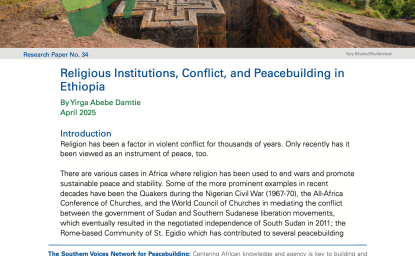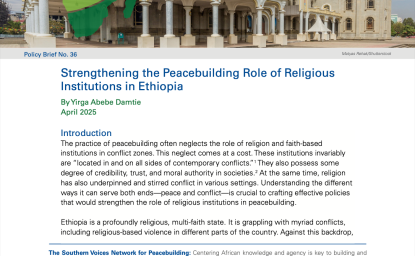R
atified by nearly every country in Africa, the African Continental Free Trade Area (AfCFTA) is the largest free trade agreement in the world. AfCFTA serves as a platform to facilitate intra-African trade, reduce barriers to business, strengthen economic integration across the continent, and increase African competitiveness in global trade. Africa contributes, unenviably, less than 3% to global trade. Considering its burgeoning population and vast resources, the continent is greatly underperforming its full market potential.
Nevertheless, this year we saw promising milestones with the expansion of AfCFTA’s Guided Trade Initiative, which grew from 7 to 39 countries. This initiative facilitates the exchange of goods and reduces tariffs, which will increase market competitiveness. The recent innovation of the Pan-African Payment and Settlement System is another important step to economic integration that facilitates and streamlines transactions that reduce the costs and complexities of foreign exchange for cross-border trade. AfCFTA has started shaping the regulatory framework for digital trade through common rules and open standards that will boost intra-African trade, promote industrialization, and create new jobs and opportunities for both local and foreign industries. Recent developments and implementation of the AfCFTA framework have rightly led many to re-examine and reimagine what is possible for the continent among Africans as well as its partners—including the United States.
There is an appetite in both Africa and the United States to create new, stronger partnerships, and for trade and investment to play a key role in that. It will be important to work together to maximize those opportunities to create a mutually reinforcing US–Africa trade and investment partnership.
An important part of that partnership will be supporting the renewal of the African Growth and Opportunity Act (AGOA). AGOA shares many complementary goals with AfCFTA—facilitating export growth, encouraging regional and global value chains, incentivizing trade infrastructure, and enhancing overall global competitiveness. The current authorization for this signature US trade preference program is set to expire in September 2025. Looming questions over its renewal resulted in a precipitous decline in trade in 2023 and the first half of 2024—with key sectors such as apparel declining by as much as 13%. While AfCFTA will be a game changer for Africa, its success will depend on access to markets. This suggests that a swift US renewal of AGOA for at least 10 years would send a powerful message to American and African companies that the United States supports Africa’s development.
Author


Africa Program
The Africa Program works to address the most critical issues facing Africa and US-Africa relations, build mutually beneficial US-Africa relations, and enhance knowledge and understanding about Africa in the United States. The Program achieves its mission through in-depth research and analyses, public discussion, working groups, and briefings that bring together policymakers, practitioners, and subject matter experts to analyze and offer practical options for tackling key challenges in Africa and in US-Africa relations. Read more

Explore More
Browse Insights & Analysis
Religious Institutions, Conflict, and Peacebuilding in Ethiopia

Spying on Poachers

